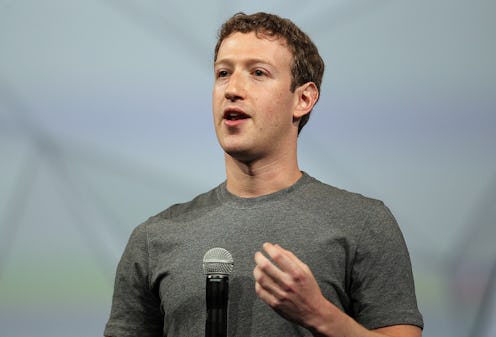News
Iran Invites Zuck To Have His Day In Court
In the midst of an Iranian court battle over Instagram and WhatsApp, both Facebook-owned entities, Iran has summoned Facebook CEO Mark Zuckerberg to appear in court to "defend himself and pay for possible losses," according to Iranian internet official Ruhollah Momen-Nasab. The case was reportedly spurred by public complaints over privacy issues, though it's not known what the precise nature of the complaints are.
Momen-Nasab did add that the Facebook billionaire could send along "his official attorney," instead of showing up himself. Given Iran's years-long ban on both Facebook and Twitter, there are very few illusions about how the Iranian government writ large views internet and social media. In the midst of the so-called Green Revolution in 2009 and 2010, when young Iranians took to the streets in massive, widespread protest of the reelection of then-President Mahmoud Ahmadinejad, the government shut off access to the two social media titans. They've been banned ever since.
Furthermore, there's a reasonable argument to be made that this particular Iranian court, reportedly of a conservative bent, could be unsympathetic to Zuckerberg thanks to, well, his name.
While the court itself made no reference to Zuckerberg's Jewish background, Momen-Nasab certainly did, calling him "the Zionist director of the company of Facebook." The reference to Zionism, given the dearth of information on Zuckerberg's actual views on Israel, seems like a euphemism to remind everyone of Zuckerberg's ethnic heritage, in a part of the world where, for reasons both political and religious, anti-Semitism still looms large.
Internet censorship is one area where observers hope Iranian President Hassan Rouhani will loosen the state's grip over different modes of communication. There are some promising signs in this regard, however bizarre they seem in the context of a society ordered off their Twitter accounts — Rouhani himself has one, as does Iran's Supreme Leader Ayatollah Khamenei.
It's possible that this case could be a reflection of that divide, not just between pro and anti-open internet advocates, but of recent tensions specifically regarding WhatsApp. It was just last week when the ubiquitous instant messaging app was facing a ban by Iran's agency in charge of internet censorship, but it was ultimately saved by Rouhani's intervention.
In short, it appears that there may be deep, ongoing tensions between Rouhani's vision of a more open internet society, however modest and incremental, and that of the state's conservative judiciary. It's a struggle which, for the sake of the Iranian public, one can only hope Rouhani finds a way to win.
